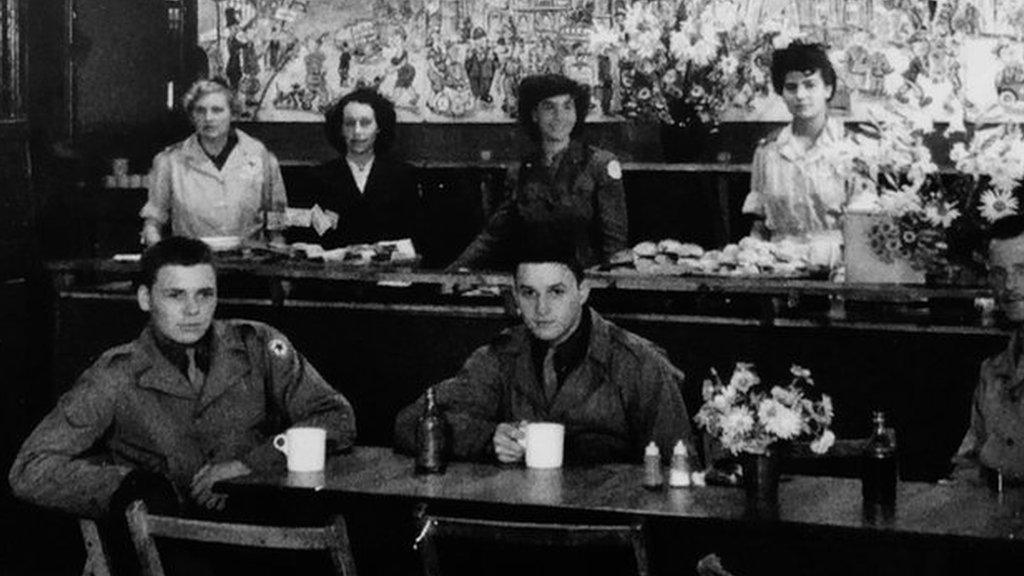D-Day: 'You did what you had to do'
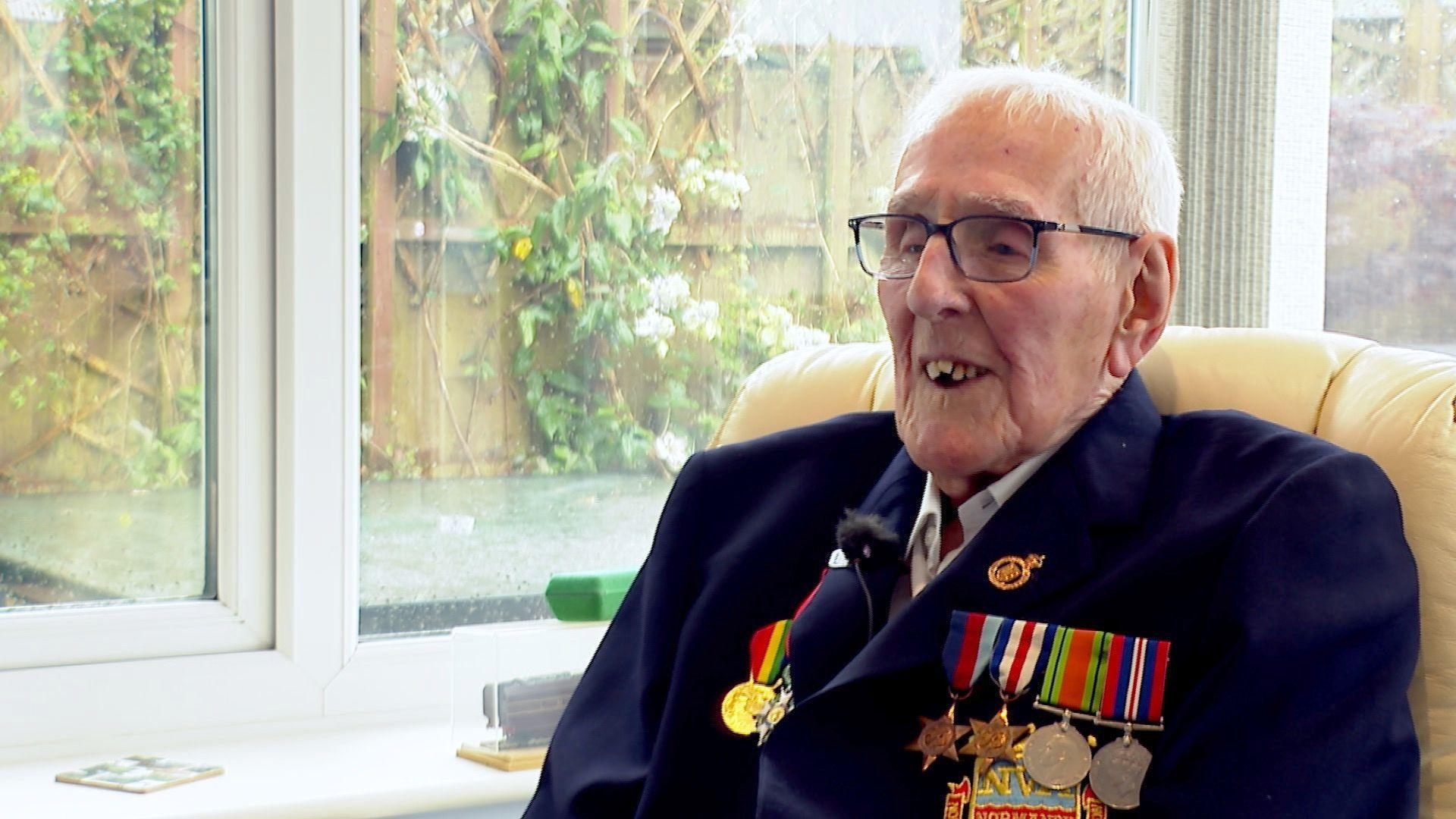
Bill Johnston remembers landing on Gold beach
- Published
Ahead of the anniversary of D-Day BBC News has spoken to veterans across Cornwall and Devon about what they experienced.
On 6 June 1944, Allied troops landed on the beaches of Normandy, in what was the biggest sea invasion in history.
The D-Day landings marked the start of the campaign to free north-west Europe from the Germans during World War Two.
'War is frightening'
Bill Johnston was 21 and among the first ashore at Gold Beach on D-Day.
"There were splashes in the water round about us," he recalled from the comfort of his Plymouth home.
"We took one or two casualties, one of our lads… it was shrapnel where a shell burst near him.
"But it wasn’t hard going."
Mr Johnston, now 100 years old, added ruefully: "War is frightening , especially when you are being shot at."
His unit pushed on into France after the landings, but his war came to a sudden end a few weeks into the invasion when he was blown into the air by a mortar shell.
The explosion damaged his spine and he was unconscious for several days but went on to make a full recovery.
Looking back on his service Mr Johnston said: “It was something that had to be done and I was part of it. I was well trained for it.
"You did what you had to do and when the day arrived that was what it was like and you did it.”
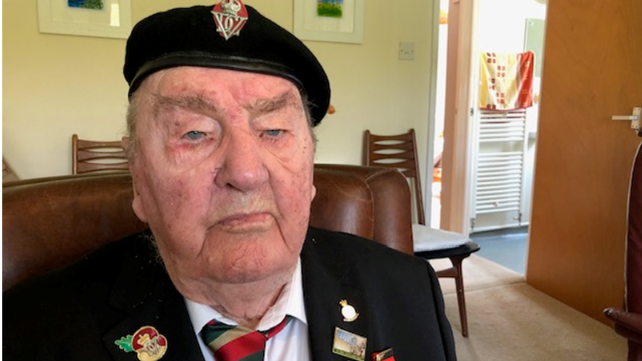
Richard Aldred described Normandy as a scene of carnage
Richard Aldred was 20 years old and a tank driver when he crossed the channel to play his part in the liberation of Europe.
Arriving a few weeks after the main invasion, he described Normandy as a scene of carnage.
"It came as a shock, I had never seen a dead body before," he said.
"I soon got used to it and the smell of death and animals being wounded was bloody awful."
Now 100 years old and living in Callington some memories remain painful: "I had to bury two of my mates."
He continued: "It was an artillery shell I think. He looked perfectly alright until you turned him over and his back was finished.
"It was awful, awful."
Mr Aldred fought through France, Holland and into Germany and is returning to Normandy for the D-day commemorations.
"It’s very humbling," he said.
"When you see all those tombstones it makes you realise Normandy was no walk in the park."
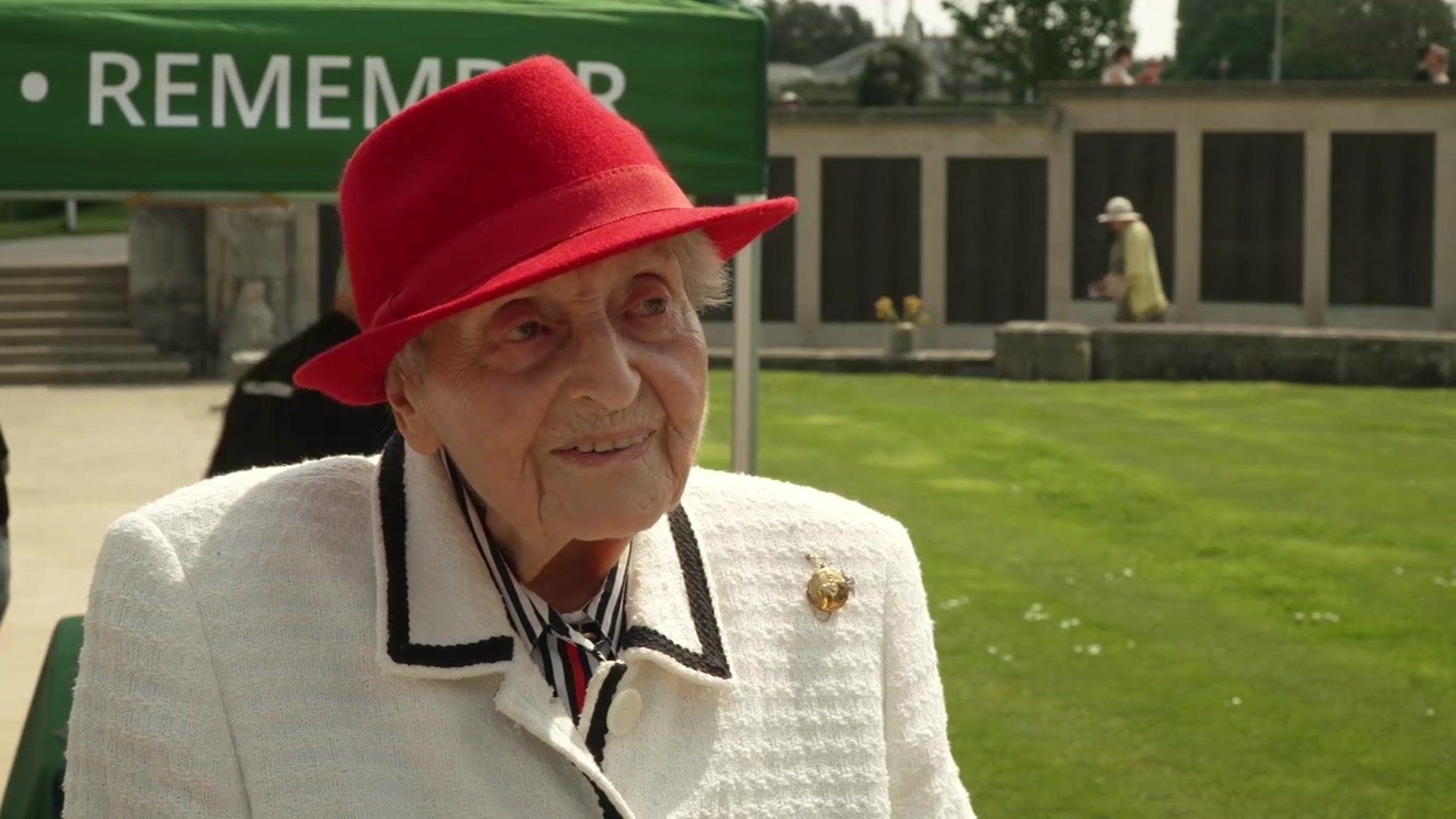
Suzanne Sparrow said she remembered the American troops leaving Plymouth
Suzanne Sparrow came from a Plymouth military family and she joined the Women’s Royal Naval Service at 17.
As part of a boat crew it was her job to ferry personnel from ship to shore in all weathers.
She saw first-hand the Allies assembling for the Normandy landings.
“The American ships started coming in. We were told not to talk about it obviously, but we knew something was brewing, but we had no idea what.”
Mrs Sparrow, now 99, has vivid memories of watching the troops leaving Plymouth for D-Day.
"These young men had come over from America. They had no idea where they were going to go or what they were going to be doing, and it suddenly struck me actually that they were the same age as myself going out to fight.
"I was really a bit shattered."
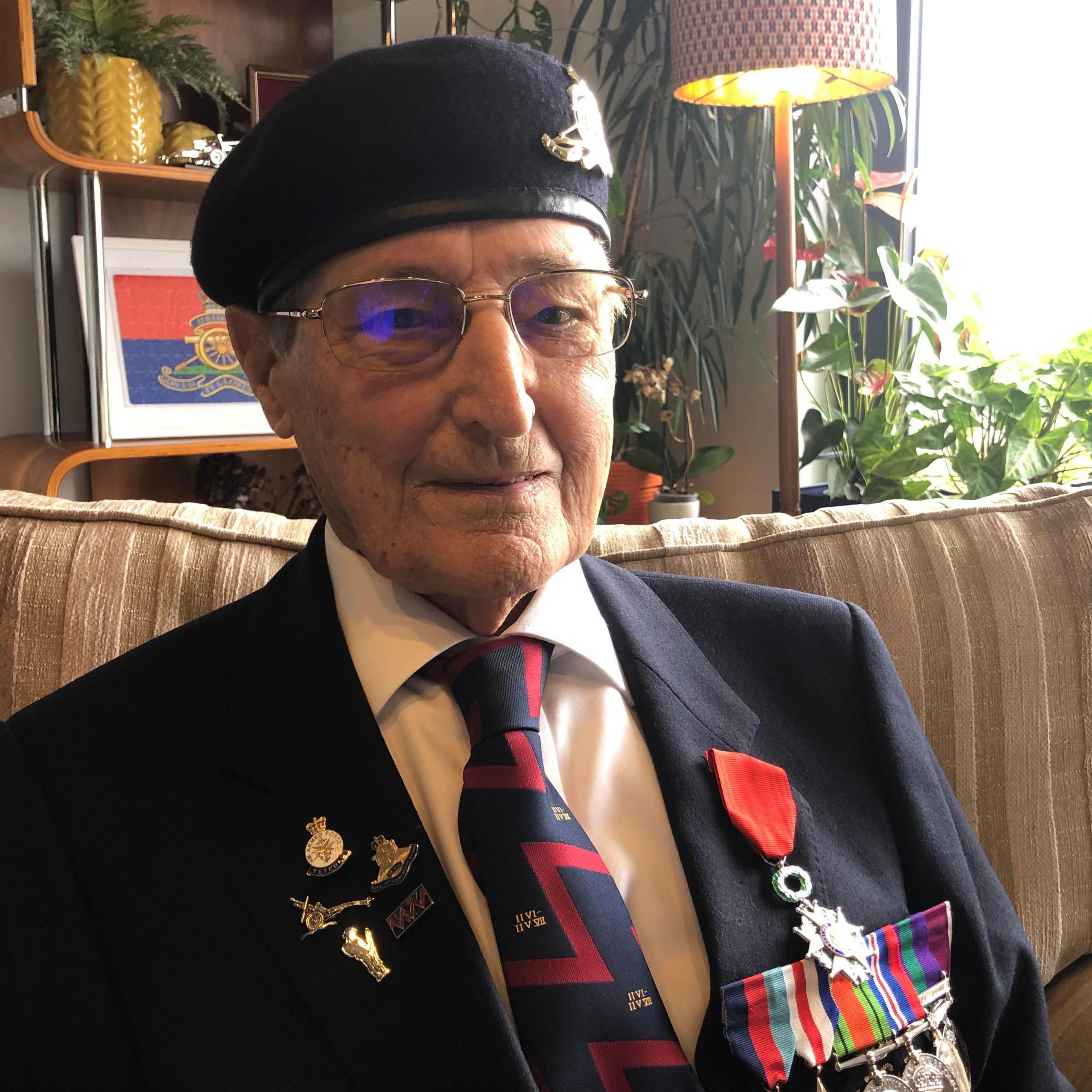
Colin Young was 18 when he landed in Normandy
As a member of the Royal Artillery, Colin Young landed in Normandy about a week after the invasion had begun.
Shortly afterwards at the age of 18 he saw his first major action when enemy troops on high ground put his unit under fire.
“They could see every move that we made.
"There was nothing that we could do that they couldn’t see.
"It was like picking rabbits off. Shooting them like at a fair ground. We were the rabbits."
Now aged 98, Plymothian Mr Young had hoped to make the trip back to Normandy for the 80th anniversary commemorations.
He said: "I lost a few mates… I will just go over there and say cheerio, I won't be able to go back again."
Unfortunately since the interview, Mr Young has become too unwell to travel.
Follow BBC Cornwall on X (formerly Twitter), external, Facebook, external and Instagram, external. Follow BBC Devon on X (formerly Twitter), external, Facebook, external and Instagram, external. Send your story ideas to spotlight@bbc.co.uk, external.
Related topics
- Published28 April 2024
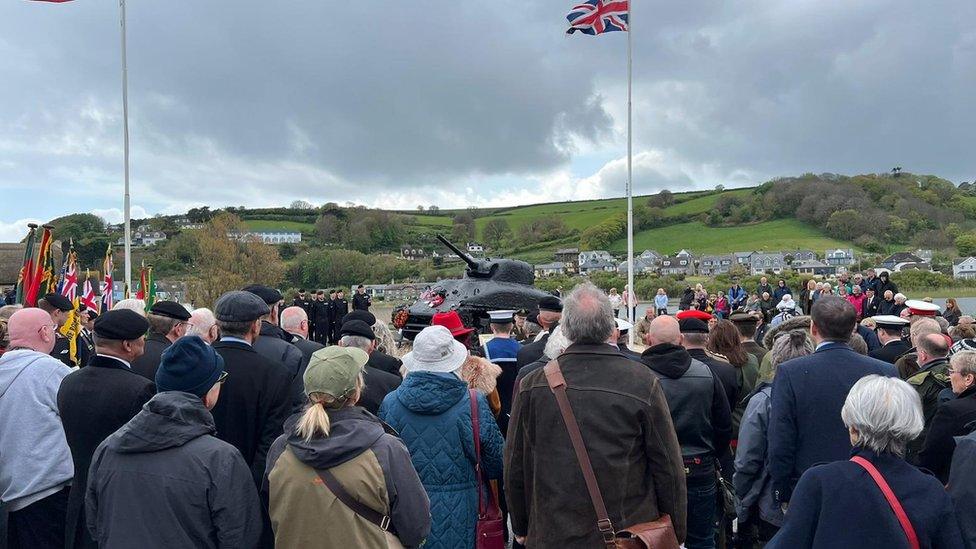
- Published2 May 2024
